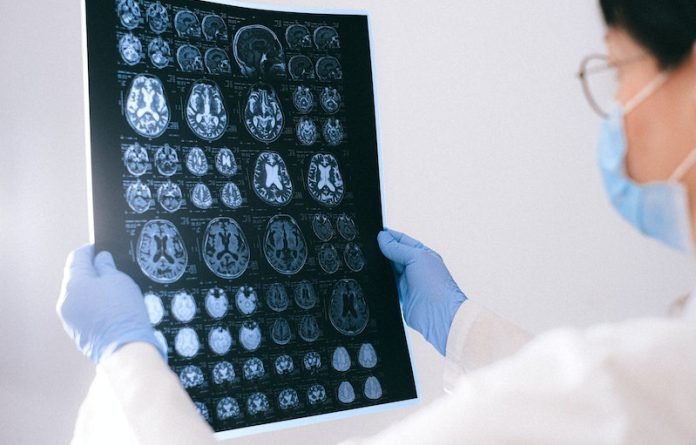
An international study led by the UPF Department of Medicine and Life Sciences (MELIS) has discovered new genes that can affect Alzheimer’s disease.
Alzheimer’s disease is a type of dementia that mostly affects older people.
It happens when a small protein called β-amyloid starts to misfold and stick together in the brain, leading to the death of brain cells. So far, there is no effective treatment to stop this process.
Researchers wanted to find genes that could make β-amyloid more or less toxic, and they turned to yeast cells for answers.
Yeast cells have many genes that are similar to those of humans, and they are easier and cheaper to study than human cells.
The researchers looked at a collection of 5,154 different yeast cells, each with a different mutation (a change in a gene), and studied how these mutations affected the cells’ response to β-amyloid.
They found 238 genes that regulate the toxicity of β-amyloid, including 157 genes that protect the cells from this toxicity and 81 genes that make it worse.
One of the genes that make β-amyloid more toxic is called Surf4. This gene is responsible for controlling the amount of calcium that enters the cell.
When this gene is overexpressed, it decreases the amount of calcium that enters the cell and makes the neurons more sensitive to the toxicity of β-amyloid.
The researchers hope that identifying these genes will help develop new treatments for Alzheimer’s disease.
By finding ways to activate the protective genes or inhibit the toxic ones, it might be possible to slow down or even stop the progression of Alzheimer’s disease.
It is important to note that this study was done in yeast cells and more research is needed to see if these genes have the same effect in human cells.
However, this study provides valuable information about the genes that regulate the toxicity of β-amyloid, and it is a step forward in understanding and potentially treating Alzheimer’s disease.
Alzheimer’s disease is a major public health concern, with 10 million new cases diagnosed every year worldwide. Finding effective treatments for this disease would have a significant impact on millions of people and their families.
Overall, this study highlights the importance of basic research and the potential for using simple organisms like yeast to identify genes that can have a big impact on human health.
In conclusion, researchers have identified new genes that can modulate the toxicity of the protein β-amyloid, which is responsible for causing Alzheimer’s disease.
Using yeast cells, they found 238 genes that regulate the toxicity of β-amyloid, including Surf4, a gene that makes β-amyloid more toxic by controlling the amount of calcium that enters the cell.
This discovery could help develop new treatments for Alzheimer’s disease and provide valuable insights into the genes that regulate the toxicity of β-amyloid.
Alzheimer’s disease is a progressive and irreversible brain disorder that affects memory, thinking, and behavior. It is the most common cause of dementia, accounting for 60-80% of all cases.
Alzheimer’s disease starts with mild memory loss and can eventually lead to severe memory impairment, confusion, and difficulty communicating.
In the later stages of the disease, individuals may have trouble performing daily activities such as dressing, bathing, and eating.
The exact cause of Alzheimer’s is unknown, but it is believed to be the result of complex interactions between genetic, environmental, and lifestyle factors.
There are currently no known cures for Alzheimer’s disease, but there are treatments available that can help manage symptoms and improve the quality of life for those living with the disease.
If you care about brain health, please read studies about vitamin D deficiency linked to Alzheimer’s and vascular dementia, and extra-virgin olive oil could boost brain function.
For more information about brain health, please see recent studies that cranberries could help boost memory, and many older people have this non-Alzheimer’s dementia.
The study was conducted by Pol Picón-Pagès et al and published in the International Journal of Molecular Sciences.
Copyright © 2023 Knowridge Science Report. All rights reserved.



